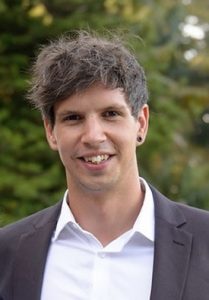100 Days of Deadly Mob
22 November 2016 ·
Ezra Jacobs-Smith, Whadjuk, Yued and BallardongNyoongar, English and Irish
“I studied mining engineering for three years and learnt a lot about the mining, and oil & gas industries in that time – particularly how dependent we have become on them. The benefits of mining, our homes, cars, computers, phones are great, but I also became aware of the price we are paying for them.
Climate change, environmental destruction, air and water pollution, housing ‘un-affordability’ and the loss of culture for our people are just some of the direct consequences of mining, oil and gas production. For us, land and culture are inseparable, so the degradation/loss of land through mining means we face ‘environmental-cultural’, ‘social-cultural’ and ‘economic-cultural’ impacts that non-Indigenous people do not face.
I witnessed this first hand when I worked at iron ore mines in the Pilbara and my research thesis focused on the effect dewatering at these mines was having on Indigenous traditional land owners. Dewatering is where you extract massive volumes of water – equivalent to Perth’s daily water usage – from the ground, to allow mining to continue beneath the water table.
The water is then discharged into the nearest creek – and so while you’re draining natural waterways, destroying food sources, songlines and sacred sites, you’re totally flooding elsewhere. Once I asked our dewatering team “what if you pump all the water out of the ground?” Their answer was, “that would be great, we could turn off all the pumps and generators and save a lot of money.”
That comment stuck with me and I didn’t agree with their attitude of putting economics before people and the environment. So, I transferred to environmental engineering because I decided I would like to use my time on this earth to help to shift us to a way of life that will sustain the environment, our culture and our people. I graduated as an environmental engineer in 2015. My long term goal is to develop environmentally sustainable economic opportunities and lifestyles for Indigenous people that will help us preserve and enhance the social and environmental aspects of our culture.
In the meantime I’m extremely lucky to be working on Wadjemup (Rottnest Island) as an Aboriginal Heritage Officer. My main responsibility is to guide the development of the Burial Ground and Quod (old Aboriginal prison), which are being turned into memorial sites to honour our men and boys who were imprisoned on the island, as well as the 370+ ancestors buried there. This project has been 30 years in the making and it’s the most significant project that has ever happened in WA for our people.
We need a memorial on Wadjemup that will tell the true history of the island and the role that it played in undermining Indigenous resistance to British invasion during the frontier wars. Our ancestors were fighting to protect their families and their countries just as the ANZACs did, so they should be honoured in a similar way. I want to see a memorial created that will help us to heal, to encourage reconciliation and to draw international recognition to the amazing resilience and strength of our people.
It’s also very daunting, because there’s so much cultural risk involved. If anything goes wrong, it’s something I will carry with me for the rest of my life. I constantly draw on guidance from my elders to ensure that every decision I make is culturally appropriate and I welcome any wisdom, guidance and support from anyone else in the community.”
